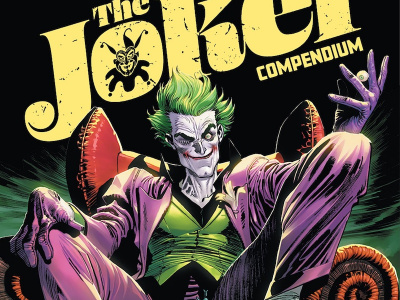
We recently sat down with FUNimation founder and CEO Gen Fukunaga in his office in Fort Worth, Texas to talk about FUNimation and the anime industry. In the second part of this two-part interview, we talk about the expansion of Japanese pop culture in the U.S., the reasons for it, and the attempts of American companies to produce anime-style content.
What's your long term view of the expansion of Japanese pop culture, specifically anime, as it's related to manga here in the U.S? Five to ten years from now, what do you expect to see in the size of those markets, versus where they are now?
Manga's growing quickly. It's starting to look like there's a bit of an over-proliferation of titles. It's still growing faster than the anime/DVD market. The DVD market is still growing, but nowhere near its previous pace. It's slowed to a decent growth rate. The market is still growing at between seven and fifteen per cent, in that anime/DVD market. I'm not familiar with the manga market because we don't do manga.
From an even more broad perspective, it seems like there's a lot of Japanese pop culture in the United States. Do you see that as a fad or a long-term trend?
I want to wrap up that last question you asked. The big unknown to growth is the fact that only certain genres have ever made it on TV in the U.S. market, mainly boys' action. Or now that people like G4 are experimenting, doing the hard-core sci-fi boys' action for teens. Where are the Fruits Baskets of the world? There are so many other genres out there that could easily break into the U.S. market. It's just that the gatekeepers haven't caught on yet. That could open up the floodgates again. As soon as another genre opens... Where the real growth is going to come is not that we're going to keep getting boys' action shows, it's going to be that programmers are going to open the floodgates to other genres that will crack the market bigger.
Interesting. Maybe that's the place where manga can lead the way, because that's happened there. All of a sudden TokyoPop threw all this girls' product into bookstores and it sold like crazy. The growth of Japanese pop culture in general, is that a long-term trend?
It's permanent. I absolutely, positively believe it. The proof is stepping back and looking at the over-all socio- and economic structure of the world. I believe that Japan will create the best animated titles for the foreseeable future. Not necessarily the highest budget title, I'm talking about the best underlying story and character development, that sort of thing. The reason I believe that is because the entertainment talent in Japan is heavily focused around manga and animation, while the entertainment talent in the United States is focused on big theatrical films. In America, Tom Cruise or Steven Spielberg can be famous, but nobody has a clue who's the creator of SpongeBob, the biggest American animated show on TV. In Japan, you bet the people know the creators of the top anime shows.
One of the two reasons is that the talent in the industry is being culturally and societally pushed toward manga and anime. Just like in Canada, young males are being pushed towards hockey and not toward football. So Canada can create all these great hockey players, even though the country is very small. It's that societal cultural pressure.
Two: Japan has a superior filtering system for taking out the bad content. In America, the filtering system is, somebody has to spend ten plus million dollars to fund thirteen to twenty-six episodes. You get whatever few slots are left on TV for that year. You take your shot. That means your entry costs are ten million dollars. Not a lot of creative people can jump in, create a show, and place it on TV. There are so few slots to put them on anyway. You have to know all the right people and play all the right games. It's not an open system.
Japan's got the same problem that it costs ten million dollars to make a show and there are only a few TV slots. But the beauty in their system is that their pyramid is so much deeper. They have thousands of creative people generating manga. They just sit in their garage. You can be a fifteen-year-old kid in your garage and create a manga and submit it to Shogakukan, it gets printed because everybody thinks it's cool, and it gets national exposure. Just like that you can get national exposure. Since they can test thousands of these manga before they decide which ones are good, those thousands are published and put through that filtering system. You get some that go through places like Shonen Jump, a bunch get weeded out. By the time you get down to the Dragon Balls of the world, and Shonen Jump, it's a hit. Spending ten million to make Dragon Ball the anime is a no-brainer.
The filtering system -- nowhere else in the world does it exist. Certainly not in America. The comic industry is too much of a niche market. That mass market exposure of thousands of creators--that will always make Japan a better system for producing top content. Therefore anime will be around for a long time.
What are your thoughts on the efforts of some American producers to produce anime-like content? Tokyopop, for example, is using American creators for new manga content, but it's American-sourced. In the animation world, you're distributing Dragon Booster. Can they capture the essence of anime if it's produced in North America?
The way the world works now, everybody's culture is influencing everybody else's. For many decades, Japanese culture was influenced by American culture. It's just influence. They're cherry-picking the parts of anime they think are cool and putting them in their American shows. They're part of the look and feel of anime, even though a lot of stories don't quite feel like anime. Visually, you're right. It's not a bad thing. People realize let's take the best of all parts of the world. If there's something cool out of France, we'll take that too.
The borrowing and cross-pollination is good for anime. People will no longer think anime's a weird thing for weird people. It's mainstream. It's helping the mainstreaming of all anime. You can copy some parts of a look and feel but we're back to the same problem. Without the filtering system, I might as well put my cash on roulette. Just making a show, you know how many of those hit.
Isn't it eating up some slots that would otherwise go to anime?
No because the programmers don't look at a slot and say, 'That's a slot just for anime.' A slot is a slot. If you're hitting the right demo, if it's boys six to eleven they want to go after, they look at all boys six to eleven whether it's anime, or not anime. The reason Cartoon Network moved so much of their anime off in the afternoons was because they looked at their target demo and realized the content didn't quite fit. It wasn't necessarily because it was anime. It was because the show just wasn't.... It was drawing too many teens.
For Part 1 of this interview, see 'Interview with Gen Fukunaga, Part 1').







